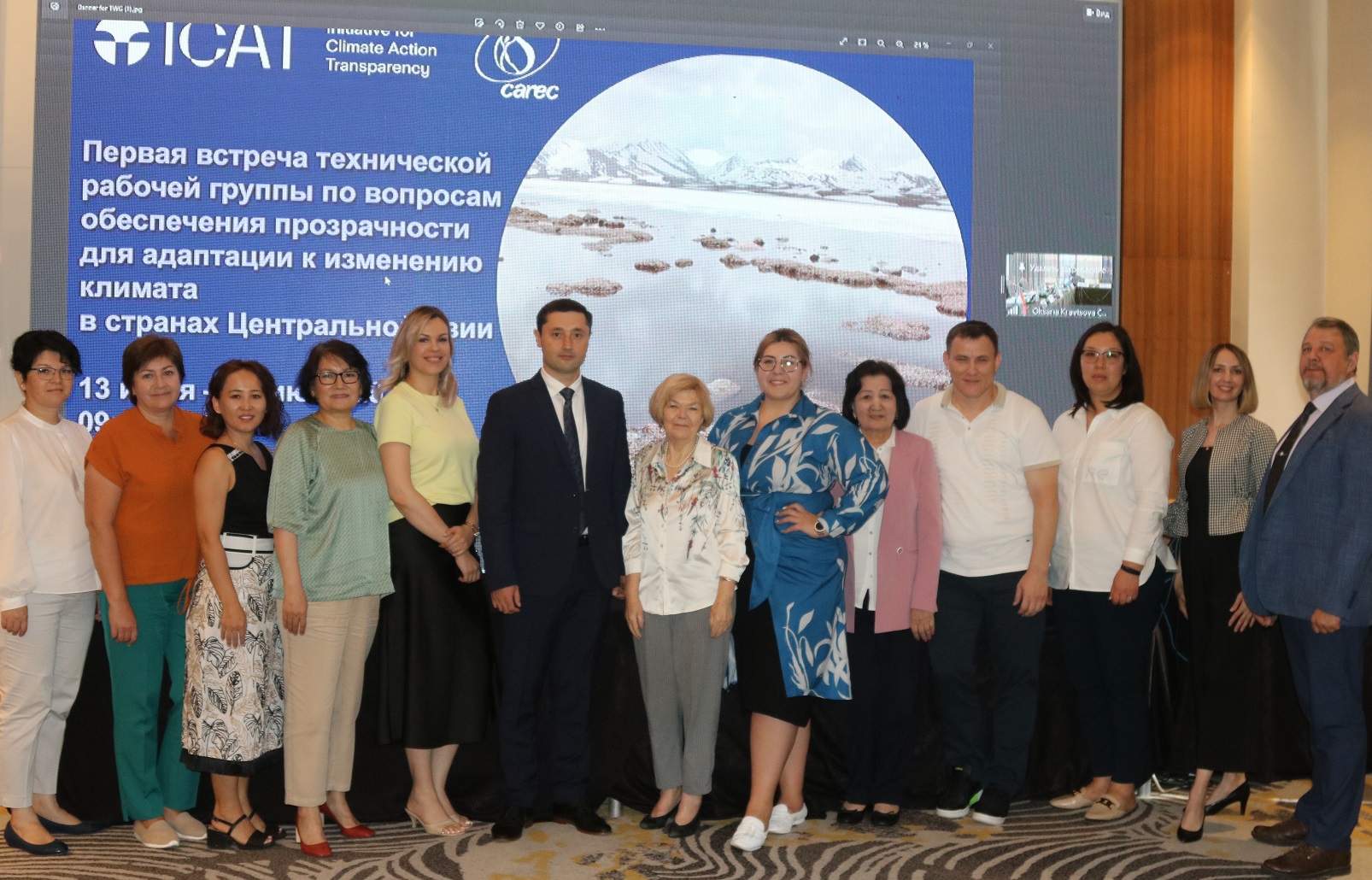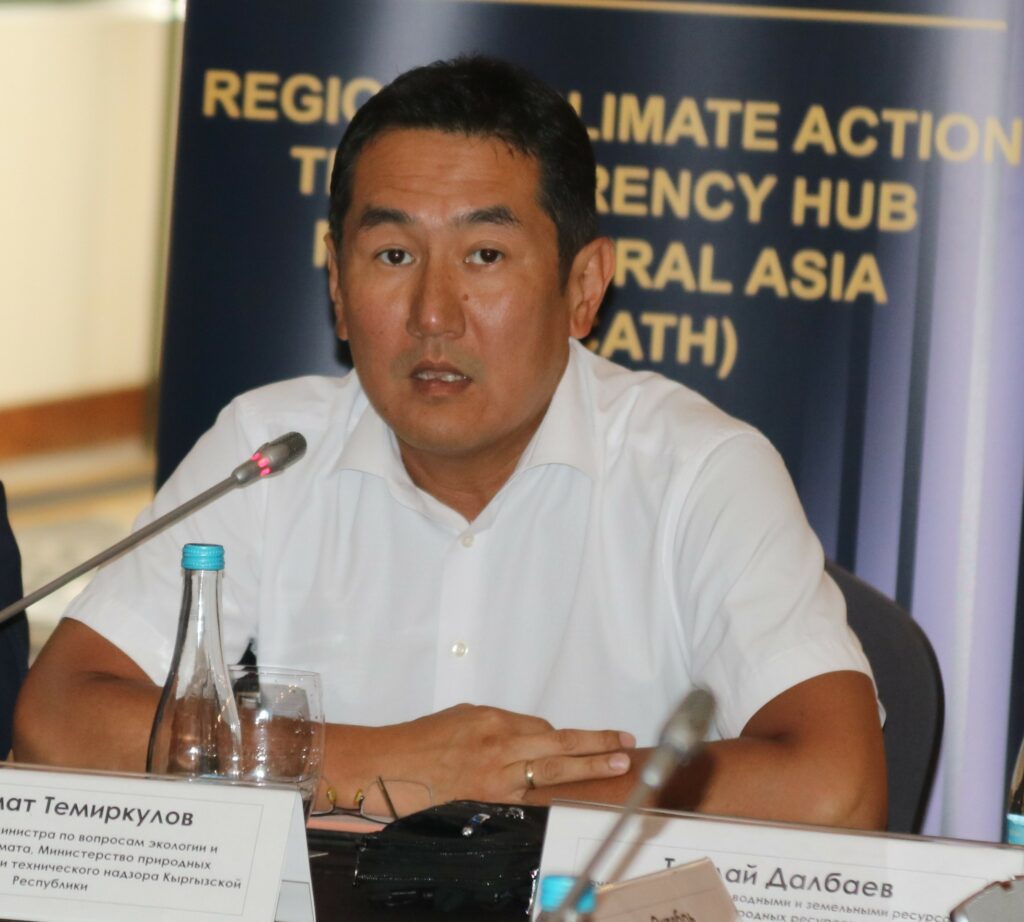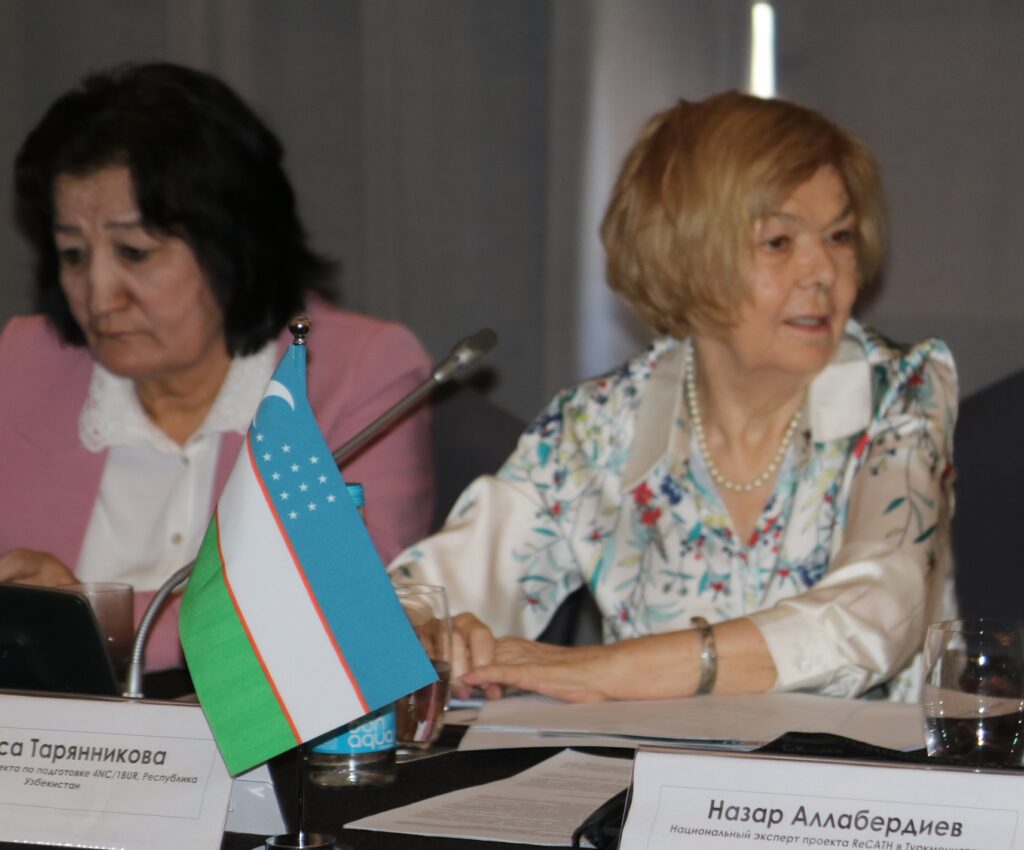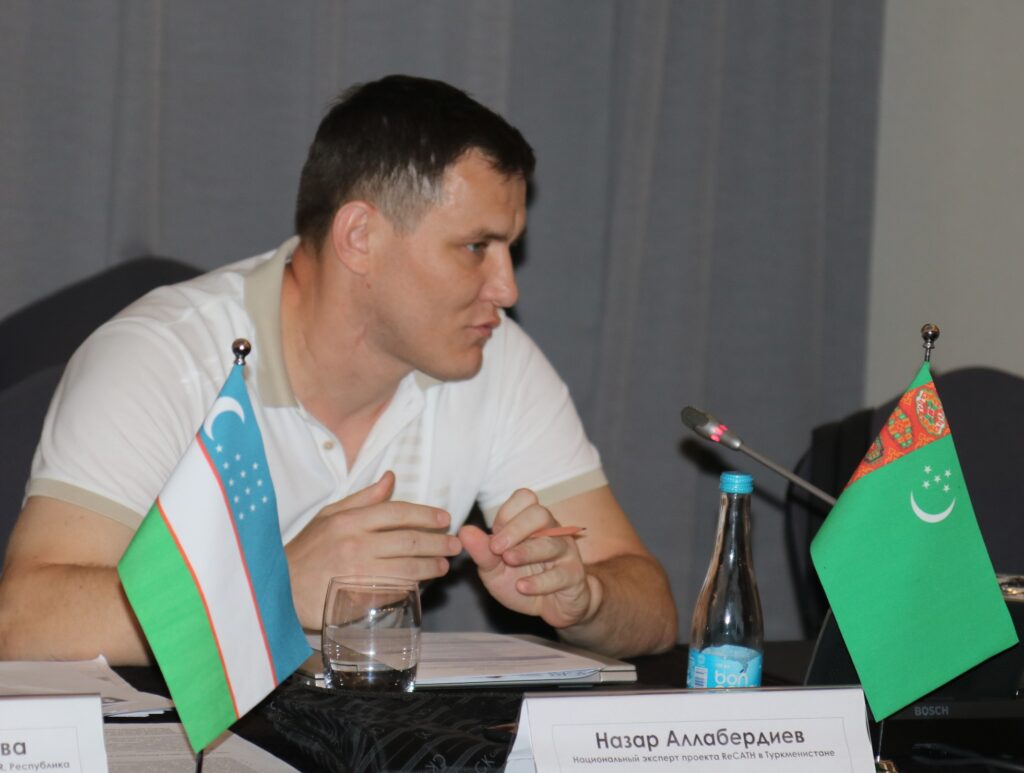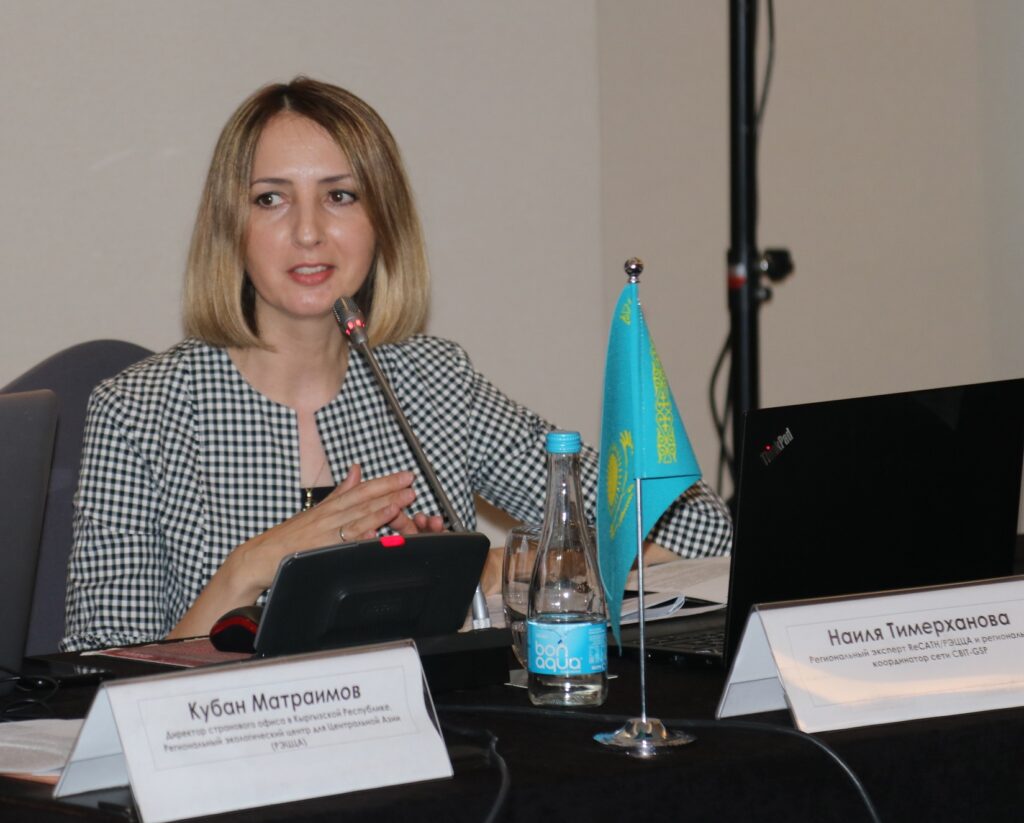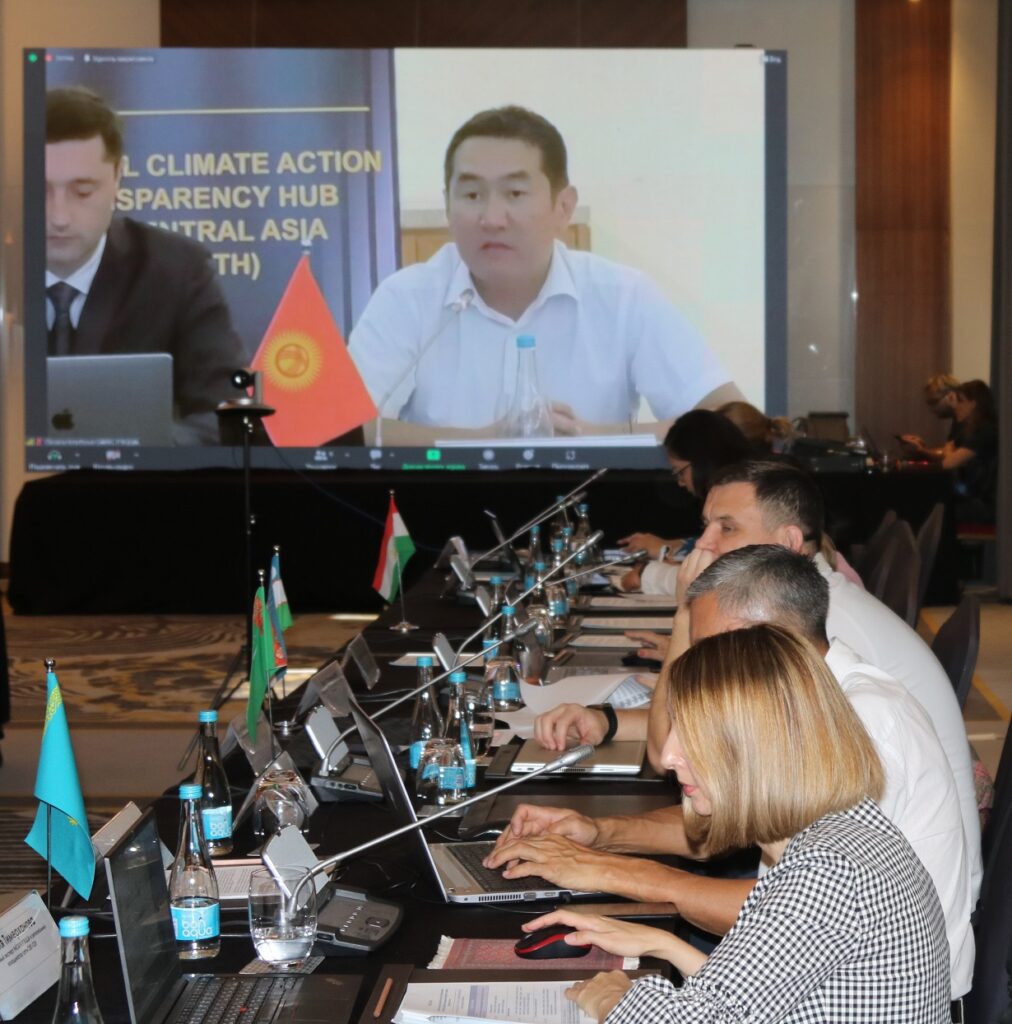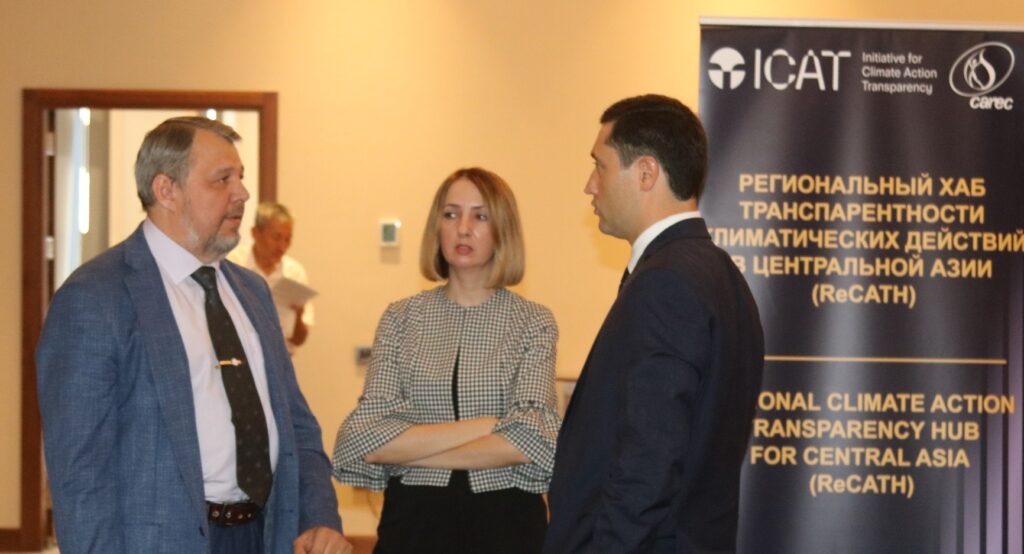Bishkek – Kyrgyzstan – the first meeting of the Technical Working Group on Transparency in Adaptation to Climate Change in Central Asian countries will be held on 13-14 July 2023 in a hybrid format: offline and online.
During the meeting, a working group on climate change adaptation will be formed; it will make a significant contribution to strengthening the regional dialogue to maintain a sustainable expert network in Central Asia.
The meeting brings together experts on climate change and adaptation issues from the countries of Central Asia who also prepare national communications and national adaptation plans (NAPs) under the Paris Agreement.
The meeting covers such a wide range of climate issues as:
- Key gaps and needs in the transparency on adaptation in the countries of Central Asia and planning of relevant activities within the framework of the project “Regional Climate Action Transparency Hub for Central Asia” (ReCATH);
- Current and planned policies and strategies on climate change adaptation in the countries of Central Asia;
- The progress in the implementation of national adaptation plans (NAP) in the countries of Central Asia and beyond;
- Exploring the possibilities and benefits of regional cooperation on climate change adaptation.
The meeting also involves the exchange of experience and best practices on issues related to methodologies and approaches in climate risk and impact assessment, as well as the study of existing examples of monitoring and evaluation (M&E) in the field of adaptation.
Representatives of Kazakhstan, Kyrgyzstan, Tajikistan, Turkmenistan and Uzbekistan will present their countries’ experience in formulating climate change adaptation policies and institutional arrangements.
Central Asia is one of the most vulnerable regions in the world to the effects of climate change. The region is already experiencing serious impacts, such as rising temperatures, declining river and lake levels, declining glaciers and snow, and frequent weather extremes, including droughts and floods. These developments have hurt various sectors of the Central Asian economies, including agriculture, energy, tourism, water and health. The landlocked location of the region aggravates the situation.
Since most of the environmental resources and ecosystems (such as rivers, lake basins and forests) are located in neighboring countries, a transboundary approach is important, as actions taken in neighboring countries may have direct or cascade transboundary climate impacts on them and vice versa.
Adaptation efforts should be based on national initiatives, broad stakeholder participation and a transparent approach, take into account the interests of vulnerable groups, communities and ecosystems, and take into account the gender perspective, build on and apply the best available scientific knowledge and, where appropriate, traditional, indigenous and local knowledge systems to integrate adaptation activities into relevant social and economic and environmental policies and measures.
“The challenges of climate change are not limited to one country. Regional and international cooperation on adaptation to climate change in Central Asia is important for the exchange of best practices, joint problem-solving and coordination among the countries of the region. To support the Central Asian countries in sharing best practices in impact and risk assessment and adaptation planning and to strengthen regional dialogue, ReCATH will organize the first meeting of the working group on climate change adaptation», – said Zafar Mahmudov, Executive Director of the Regional Environmental Centre for Central Asia.
The first meeting of the Technical Working Group on Transparency in Adaptation to Climate Change in Central Asian countries is organized by the Regional Climate Action Transparency Hub for Central Asia (ReCATH) which is implemented by the Regional Environmental Centre for Central Asia with funding from the Initiative for Climate Action Transparency (ICAT) and with the support of the Ministry of Natural Resources, Ecology and Technical Supervision of the Kyrgyz Republic.
Additional information:
Dilovarsho Dustzoda, ReCATH Project Manager, recath_manager@carececo.org
Kravtsova Oxana, ReCATH Project Specialist, okravtsova@carececo.org
ICAT web: www.climateactiontransparency.org
Project page: https://carececo.org/main/activity/projects/recath
The ReCATH project is an implementation of the Climate Action Transparency Initiative (ICAT), which supports countries in developing their capacity to create and manage a robust transparent framework that enables them to effectively implement the Paris Agreement and facilitate the transition countries to new reporting under the Enhanced Transparency Framework (ETF).

